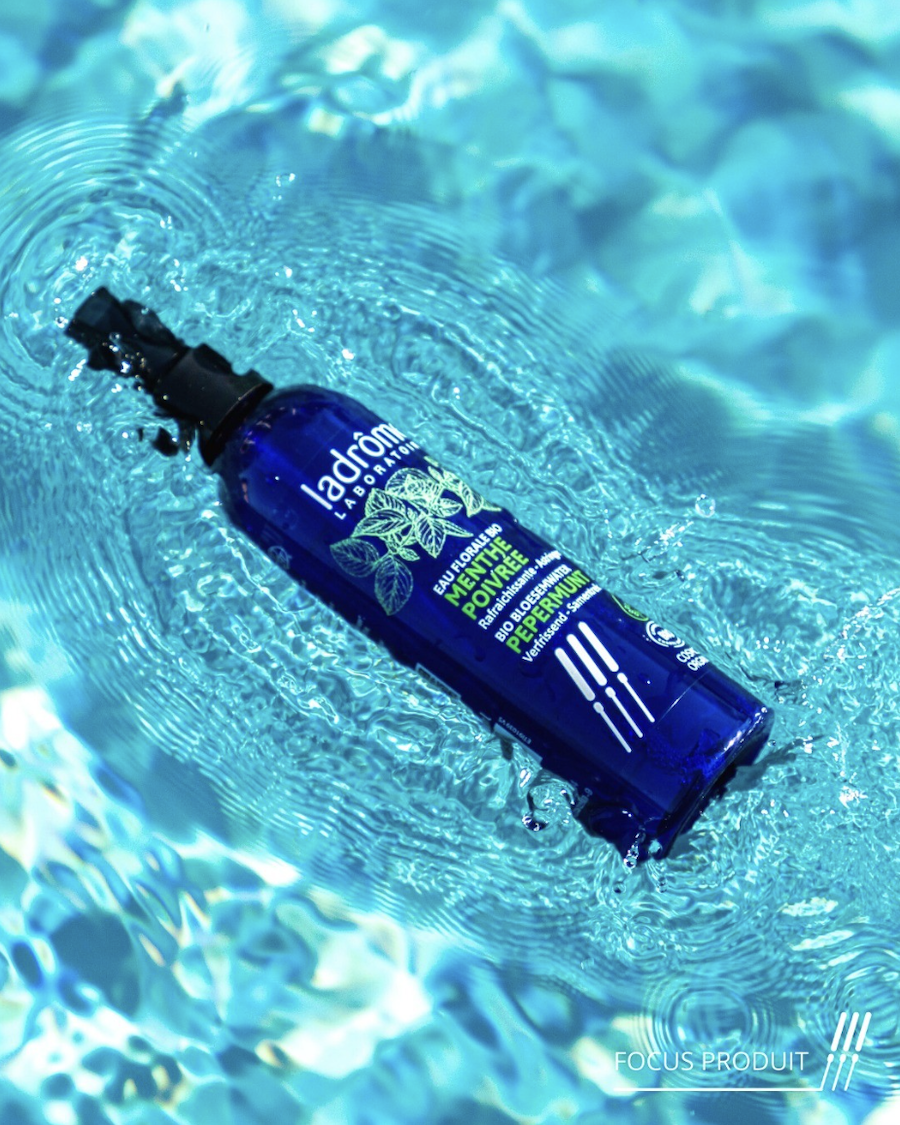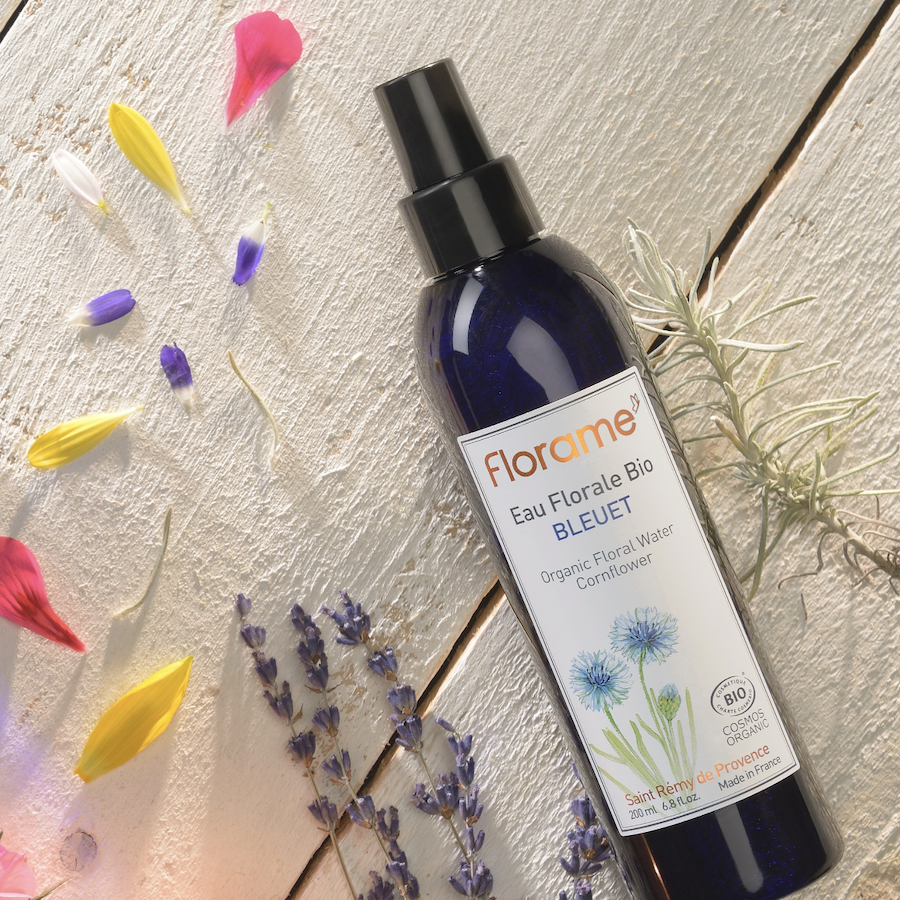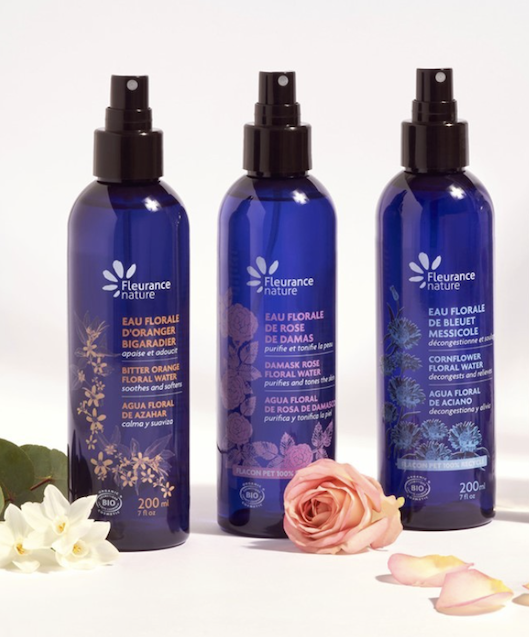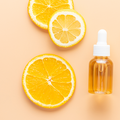
Hydrolates (also known as hydrosols) and floral waters, what are they exactly ? When switching to organic cosmetics, some products that are not commonly found in classic beauty routines may raise intrigue us. Hydrolates and floral waters are high on that list!
So what are they exactly? And what are they used for? Let's dive into the subject and learn a bit about them.
What is a hydrolate?
Definition of hydrolates
A "hydrolate" is the water obtained from the steam distillation of a plant using a still (an apparatus used to distill liquids). When the distilled plant is aromatic, essential oil is also produced simultaneously. During this process, one could consider the essential oil the "principal goal" of distilling the plant and the hydrolate is a sort of "by-product". But its a by-product that should also be valued!
Both are considered products of aromatherapy, but hydrolates are much gentler than essential oils because they are less concentrated. Thats why we can apply them directly to the skin without having to use a neutral oil as a medium.
Using hydrolates in your beauty routine
You can incorporate hydrolates into your beauty routine in many different ways :
- Applied directly on the face as a toner
- Soaked in a cotton pad to make cool compresses for the eye area
- As a mist to refresh the face or body throughout the day
- As a spray for the hair or scalp
Personally, I use it in the morning and in the evening as a toner after cleansing my face and before applying my serums and moisturizers. The goal is to complement the action of the treatment with a light product and to refresh my skin.

Hydrolates have a few other uses as well:
- Replacing tap water to cleanse your skin or rinse your hair,
- Replacing tap water to make your DIY cosmetics,
- Replacing tap water to create masks from powders.
The goal here is to avoid the residues of hard water (higher mineral content, such as limestone)and chlorine, elements often found in tapwater that can irritate the skin and dull the shine of hair.
Have you noticed that in natural and organic cosmetics, hydrolates can be directly integrated into the ingredient list to replace or partially replace the water in the formula? For the same reasons mentioned above, this gives us a cosmetic product filled with even more benefits and natural active ingredients!
Food quality hydrolate (or hydrosols)
Hydrolates are also known for cooking when concocting flavorfull recipes, such as the famous orange blossom hydrosol in crepes! They can also be taken as a dietary supplement. In this case, the product is classified as a food item and must comply with the applicable regulations. In organic products, you will more likely see the AB label on these items rather than our organic label for cosmetics.
Difference between hydrolates and floral waters
What differentiates hydrolates from floral waters is the type of plant being distilled. Floral waters are just a subgroup of hydrolates that come exclusively from flowers.
How to properly store and preserve a hydrolate or floral water
Is it really necessary to store your hydrolate in the refrigerator after opening? That depends!
Cosmetics containing a lot of water require a more advanced preservation system than, for example, an oily product. That's why some hydrolates need to be kept away from light, in a cool place, or even in the refrigerator. The important thing is to follow the brand's instructions for use!
Since our refrigerators tend to be far from our bathroom, a brand might choose to add a preservative to the hydrolate. In organic cosmetics, only a few authorized preservatives can be used. Today, some organic cosmetic brands use natural and innovative preservatives like "leuconostoc/radish root ferment filtrate," a natural preservative obtained through the fermentation of radish root.
In any case, cosmetic products must undergo preservation tests to ensure their durability over a given period, including:
- A challenge test (to ensure that the product does not allow microbial growth)
- A stability test (to determine the product's shelf life and optimal storage conditions)
These tests are mandatory in order to comply with European cosmetic regulations.
Which hyrolate should I choose for my skin type?
Today, there are dozens of different hydrolates available on the market. Their properties vary depending on the plant, allowing each person to find one suited to their needs.
The choice of your hydrolate should be based on two factors: your skin type and the desired effect. Here are some examples of the most common ones to guide you (this list is non-exhaustive 😉):
- For combination skin: cistus, rose, or immortelle
- For oily skin: lavender, witch hazel, rose, bay laurel, myrtle, geranium, or peppermint
- For acne-prone skin: clary sage, rosemary verbenone, tea tree, bay laurel, or geranium
- For dry skin: cornflower, chamomile, or orange blossom
- For sensitive and reactive skin: helichrysum, chamomile, witch hazel, linden, or cornflower
- For mature skin: lemon balm, verbena, cistus, or rose
- For normal skin: choose from all available options based on the benefits you wish to enjoy :)
For more information on how to choose your hydrolate, we invite you to consult the product pages of Cosmébio-labelled hydrolates and floral waters.

Can't decide which hydrolate would work best for you? Know that, like essential oils, they can be mixed to create a synergy that combines their benefits!
Are there any contraindications when using hydrolates?
Unlike essential oils, which are very concentrated in active ingredients, hydrolates are very gentle and have no contraindications. Pregnant or breastfeeding women can use them, as well as children.
However, we advise remaining cautious because anyone can react to a cosmetic product differently, even if it does not have contraindications. As with any product, it is advisable to test the hydrolate on a small patch of skin to ensure that your body and skin will react positively to its application.
Additionally, if you know you have an allergy to a particular plant, avoid its hydrolate as a precaution.
Now with all this information in hand, all that is left is to test a few organic hydrolates and find out which is your favorite! Your natural beauty routine will have an added boost and your skin an extra glow ✨



